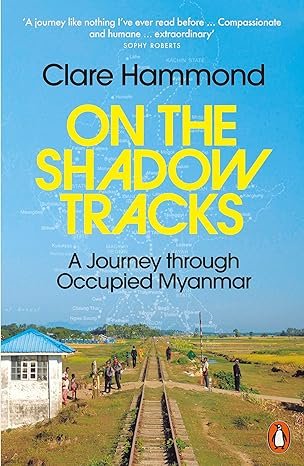Extraordinary Travel Writing by Extraordinary Women
Travel writing has long been dominated by male voices, but some of the most compelling and honest accounts of the world come from women who've ventured far beyond the familiar. These amazing five books offer something rare: perspectives that challenge assumptions, reveal hidden corners of the world, and remind us why we read about places we may never go.
Walking with Nomads: A Journey Through the Moroccan Sahara by Alice Morrison
Alice Morrison traded her life as a BBC journalist for the Moroccan desert, and in Walking with Nomads, she documents her 2,000-kilometer trek across the Draa River valley with a Berber family. This isn't a romanticized tale of "finding oneself" in exotic locales; it's an unflinching look at the physical demands of nomadic life, the complexities of cross-cultural friendship, and what happens when you genuinely embed yourself in a way of life that's disappearing. Morrison writes with humor and self-awareness about her own limitations while offering deep respect for her companions.
On the Shadow Tracks: Leaving Footprints Across India and Afghanistan by Robyn Davidson
Robyn Davidson first became known for crossing the Australian outback with four camels in the 1970s. On the Shadow Tracks finds her decades later, retracing the migration routes of the Rabari people across India with their herds. Davidson writes about memory, aging, and what it means to return to nomadic life when your body no longer cooperates the way it once did. Her prose is spare and honest, grappling with the tension between outsider observation and genuine participation.
Black Ghosts: A Journey Into the Lives of Africans in China by Noo Saro-Wiwa
Noo Saro-Wiwa, daughter of executed Nigerian activist Ken Saro-Wiwa, spent five months traveling through China investigating a little-known community: African economic migrants living in the People's Republic. Her encounters include a cardiac surgeon, drug dealers, visa overstayers, and men married to Chinese women who speak English with Nigerian accents. Saro-Wiwa explores how Africans navigate a society known for its unprogressive views on race, where Black people lack the cultural currency they hold in the West. The title refers to the derogatory Chinese term for Africans, but also captures their precarious status—people who can live in China for a decade with Chinese spouses and half-Chinese children yet still only qualify for one-year visas. Written with candor and sharp observation, the book won the Stanford Travel Writing Award in 2025, recognizing Saro-Wiwa's revealing portrait of this poorly documented migration.
In the Shadow of the Mountain: A Memoir of Courage by Silvia Vasquez-Lavado
Silvia Vasquez-Lavado's In the Shadow of the Mountain is part mountaineering memoir, part reckoning with trauma. The Peruvian-American author writes about climbing the highest peaks on each continent while confronting the sexual abuse she experienced as a child. This isn't a straightforward adventure narrative—Vasquez-Lavado braids together her physical journeys with the harder internal work of healing, creating something raw and necessary. Her voice is unflinching, particularly when describing how she used mountains as both escape and therapy.
Holy Cow: An Indian Adventure by Sarah Macdonald
When Sarah Macdonald's partner was posted to India, she reluctantly followed—and found herself in a country she'd previously dismissed after a difficult backpacking trip years earlier. Holy Cow chronicles her attempts to understand India's spiritual landscape through immersion: she tries everything from ashrams to Vipassana meditation, Catholic services to Sikh temples. Macdonald writes with self-deprecating humor about her own prejudices and misconceptions, creating a book that's as much about confronting your own assumptions as it is about India itself.
The Best Women's Travel Writing Series
For readers hungry for more voices like these, the Best Women's Travel Writing series, published annually, offers a vital collection of essays from women writing about the world. Each volume gathers pieces that range from humorous misadventures to profound cultural observations, from solo journeys to family travels. What unites them isn't a single style or destination but a commitment to honest storytelling—these writers don't perform fearlessness or fake epiphanies. They write about being uncomfortable, making mistakes, and seeing clearly. The series has become essential reading precisely because it refuses to limit what women's travel writing can be, showcasing voices that are funny, angry, contemplative, and always paying attention.
These books prove that the best travel writing isn't about ticking off destinations or achieving some manufactured transformation. It's about attention, honesty, and the willingness to sit with complexity—qualities that these brilliant women bring to every page.






